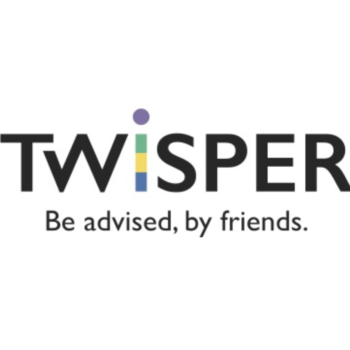In times of crisis such as this, unity is more important now than ever. Not only do we need to find ways to help businesses in the travel sector survive, we need to reaffirm our faith towards positive belief, that we will get through this very difficult but temporary period of time.
At the same time, dialogue is necessary for change to happen. We need to openly talk about the things that have been harmful to businesses everywhere. Within travel, nothing has probably been more harmful to online travel than the introduction of reviews and ratings.
Reviews that have not passed due diligence have the potential to harm the reputation of small businesses everywhere and cost them thousands of dollars in the process. Fake reviews favor businesses who know how to play the system and deceive readers who have put their blind faith on an anonymous reviewer.
At TWISPER, we’ve intentionally done away with reviews and ratings. We believe that there’s a better way to discover amazing places beyond trusting reviews and ratings from strangers you’ve never met.
Things need to get better, and we want to be part of that movement that will stop allow ratings to unfairly define the way we travel.
When ratings fail both users and businesses
In the past few years, the reputation economy has become increasingly bloated, saturated, and most importantly unreliable. Gone are the days when reviews indicated an authenticated stamp of approval on the quality of experience that a place provides, and more businesses are getting savvy in cheating the system.
In fact, Saoud Khalifah, the founder of Fakespot – a company that analyzes and detects fake reviews across different platforms – claims that 1/3 reviews on a travel platform giant are fake. It’s a staggering claim that comes on the heels of concerns surrounding fake news. While this platform denies these allegations, it shows a growing distrust that more and more people are having towards reviews from people they do not know. User reviews are meant to be taken with a grain of salt.
Think of the countless other restaurants that buy fake reviews, not only to get to be at the top of the rankings, but to also destroy other businesses. Research states that fake negative reviews are costing businesses upwards of £30,000 per year.
And of course, within this system, the most mediocre place can turn into the trendiest hotspot. Bars serving no food get mistakenly classified as restaurants. And rival business owners buy fake negative reviews to lower their competitors’ ratings. Seems implausible? Here are some real-life cases where these have exactly happened.
Case 1: The Shed, the trendiest hotspot in London is actually an overgrown backyard serving microwaved food
Using deception tactics, Oobah Butler transformed The Shed into the #1 London restaurant on a travel platform giant.
Online, he sold a gastronomic dream. The Shed was “London’s best-kept secret”. He created a website complete with a great logo and a minimalist layout using the world’s classiest serif font, Garamond. On the menu, people would order moods instead of traditionally-named dishes.
In reality, The Shed was a typical South London, overgrown backyard. The restaurant didn’t exist. He staged photos featuring microwaved food freshly bought from Iceland – a top-tier supermarket known for its budget selection of frozen meals – his foot, and Gillette shaving foam as supposedly, mouth-watering crème chantilly.
The hoax received significant media attention for exposing the main issues with the reputation economy.
Case 2: Café La Java gets into the top of restaurant listings rankings with no food, owner shows ass to travel platform giant
Café La Java in Saint-Malo, Brittany, is known for its amazing interior that’s filled with ornate chachkis and the café regularly attracts tourists from around the world.
But in June 2019, the café and its spirited owner got in front of the French headlines for something else. On Facebook, he posted a photo of him, butt-naked, in his restaurant, and wrote a lengthy caption against a certain travel platform.
Café La Java got into the top of a travel platform’s restaurant listing rankings in Saint-Malo, Brittany thanks to fake food reviews from his customers, who were part of the ploy. The reviews included fake claims, such as La Java having “the best pig trotters in town” or that the café had “superb gastronomy”.
In the Facebook post, he mentioned how rating platforms function as a form of cowardice and went on to say:
You have to be superhuman to endure this wickedness, backbiting and gossiping on a daily basis. So, everyone who calls me a tourist bar (as if it was shameful to serve great people from all over the world), self-centered, smug, or even facho, I can offer you… my ass.
This post on Facebook received thousands of likes and shares, and served as a rallying cry against an exploitative ratings system that’s been harming businesses and costing them in the thousands.
Case 3: Aggressive sales tactic to buy ad space
A certain travel platform in the US has been in hot water over alleged unfair business practices for a long period of time.
Small businesses have sued this review platform for more prominently showing negative reviews over positive ones. According to these businesses, the only way that they could get above the competition was through paying for the platform’s ads.
Reiko Roberts, owner of a vintage clothing shop, talked about the advertising pressure tactics from salespeople amounted to extortion. When she refused to buy ads, “the lower reviews go to the top and the higher reviews go to the bottom.”
There are many more allegations surrounding the reputation economy. This is just touching the tip of the iceberg. But you hopefully get my point.
Online reputation should come from great customer experience
The reputation economy has become harmful to small businesses that now spend thousands of dollars, just to bump up their ratings on the platform, and unreliable for users everywhere.
We desperately need a new model outside ratings and reviews. Online reputation shouldn’t end up costing you more than the services offered by businesses, and it shouldn’t be about stars or ratings.
Online reputation should revolve around the great, personal experiences of users in their favorite businesses that they share to their circle of friends. It should revolve around a combination of delicious food, great customer service and amazing interior. It should be about the users’ positive interactions with businesses they want to celebrate.
There is a future beyond the reputation economy, away from ratings and stars, and we just need to support this. Through the TWISPER platform, we want to turn this future into reality.
The solution: Creating a positive social travel platform for users and businesses
Revolutionizing the way restaurants, hotels and bars connect with their clients, we’ve considered the shortcomings of the ratings system by simply… not using them ?. That’s right. We know how easily ratings can be tampered with, so, we’ve decided to simply get rid of them.
Instead, the TWISPER app works on a system of positive recommendations that encourages users to share their amazing experiences of their favorite restaurants, hotels and bars. Users only interact with businesses they love to let their friends know about them.
Moreover, they can only see the experiences and favorite places of the friends they’ve decided to add, or of the partners and influencers they’re following. This system eliminates the problem of fake users doing fake reviews, because the users simply wouldn’t add them.
Through our platform, users can rave about their amazing experiences and bring positive online word-of-mouth buzz to their favorite businesses that, in turn, can leverage this buzz for more growth.
Therefore, our business model revolves around creating healthy and transparent interactions between businesses and their customers, because we truly think that this is the way forward when it comes to creating a sustainable travel platform that brings back fairness to the industry.
And, finally, we don’t sell user data — point blank
For us, user privacy and trust are at the core of what we do. User data remains exclusively within the app and won’t be sold elsewhere. As a company, we’ve made a value-led decision to develop a revenue model that relies on business subscriptions, not user ads.
This ensures that our app truly only depends on the positive recommendations that users make of their favorite businesses. There are no ads that businesses can buy in order to appear in front of the users. Only great experiences can help turn a place popular on the app.
Join our positive travel revolution
TWISPER is building a positive community that is revolutionizing the online travel industry.
We represent the businesses that have spent thousands of dollars on reviewing platforms to fix their online reputation. We represent the disgruntled users who have been disappointed by places that have purchased their reviews.
We represent the frustration of so many people over a system of reviews and ratings that have become extremely untrustworthy over time.
TWISPER is a social travel platform to discover and share amazing restaurants, hotels and bars through positive, personal recommendations between friends and a healthy and rapidly-growing community of +100K users.
Join us and let’s make this future happen, together. TWISPER is free on Play Store and iOS ?.

 By TWISPER -
By TWISPER - 










